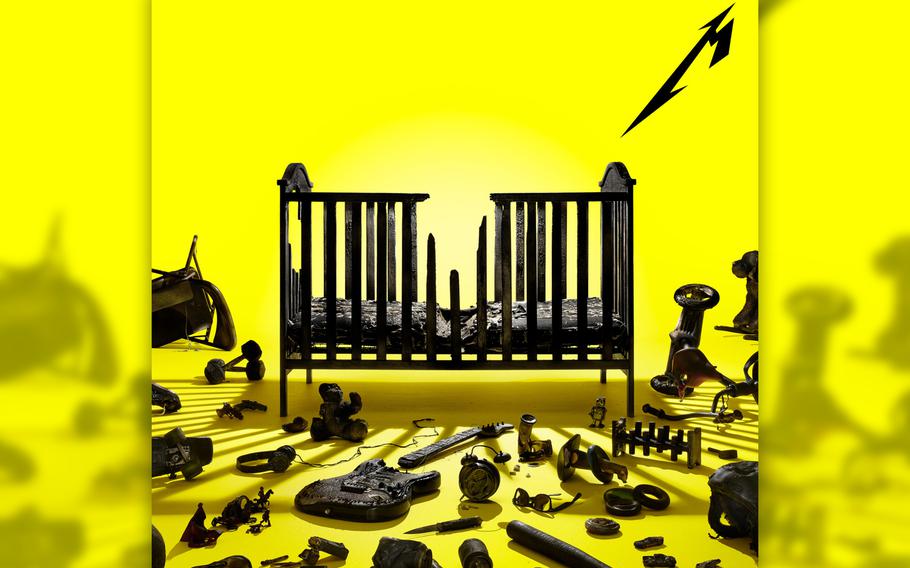
"72 Seasons," Metallica (Blackened Recordings/Nasty Little Man PR)
Metallica has been the ultimate musical spectator’s sport ever since its 1991 self-titled record (better known as “The Black Album”) catapulted the quartet to the top of the hard-rock heap. Every move the world’s most famous heavy metal band makes is scrutinized by rabid fans who love to pop up whenever a new album is announced and proudly proclaim that Metallica hasn’t released a good album since (insert ’80s Metallica record of your choice here).
“72 Seasons,” released April 14 on the band’s Blackened label, isn’t changing those fans’ minds. All the hallmarks of a latter-day Metallica album are present on its 11th long-player, for better or worse. Per the usual, the record goes on at least 25 minutes and/or four songs too long, bogged down with a few too many of those pesky “slow” songs (though not as many as there were on 2016’s half-great “Hardwired … to Self-Destruct”).
But “72 Seasons” succeeds in the same way “Hardwired” did – in fact, this is the best these guys have sounded in years. This is the sound of Metallica doing exactly what it wants to do, not trying to appease rock radio as it did, to an extent, on the mid-’90s “Load” and “Reload” albums, or conform to musical trends as on 2003’s nu-metal tinged “St. Anger.”
When the band slows down on “Sleepwalk My Life Away” or the sprawling, Black Sabbath-inspired closer “Inamorata,” it does so with deliberate force and intention. Thrashers such as the opening title track and the jagged “Shadows Follow” manage to capture some of the spirit of the quartet’s ’80s heyday, albeit with experience substituting for youthful angst. And equally fast-paced “Chasing Light” and “Room of Mirrors” find new wrinkles in the band’s thrash-y stomp.
Lyrically the record recalls the aforementioned “St. Anger,” with vocalist/guitarist James Hetfield once again drawing from his battles with addiction and mental health inspired in part by a return to rehab in 2019. But where “St. Anger” felt like Hetfield reciting his unedited (and often embarrassing) diary entries, “72 Seasons” is far more thoughtful as it tackles such topics as the taboos around talking about suicide (“Screaming Suicide”) or confronting your inner demons (“Shadows Follow,” “If Darkness Had a Son”).
The best of the bunch is “Too Far Gone?,” a tight, galloping punk-metal banger that takes cues from the band’s 1983 debut album “Kill ’Em All.” Dueling riffs and harmonies from Hetfield and lead guitarist Kirk Hammett ride a brutish beat from drummer Lars Ulrich and bassist Robert Trujillo (who finally sounds up-front in the mix). The hopeful lyrics, in which Hetfield eventually realizes he’s “never too far gone to save,” sound like what might happen if Dee Dee Ramone wrote a Metallica song.